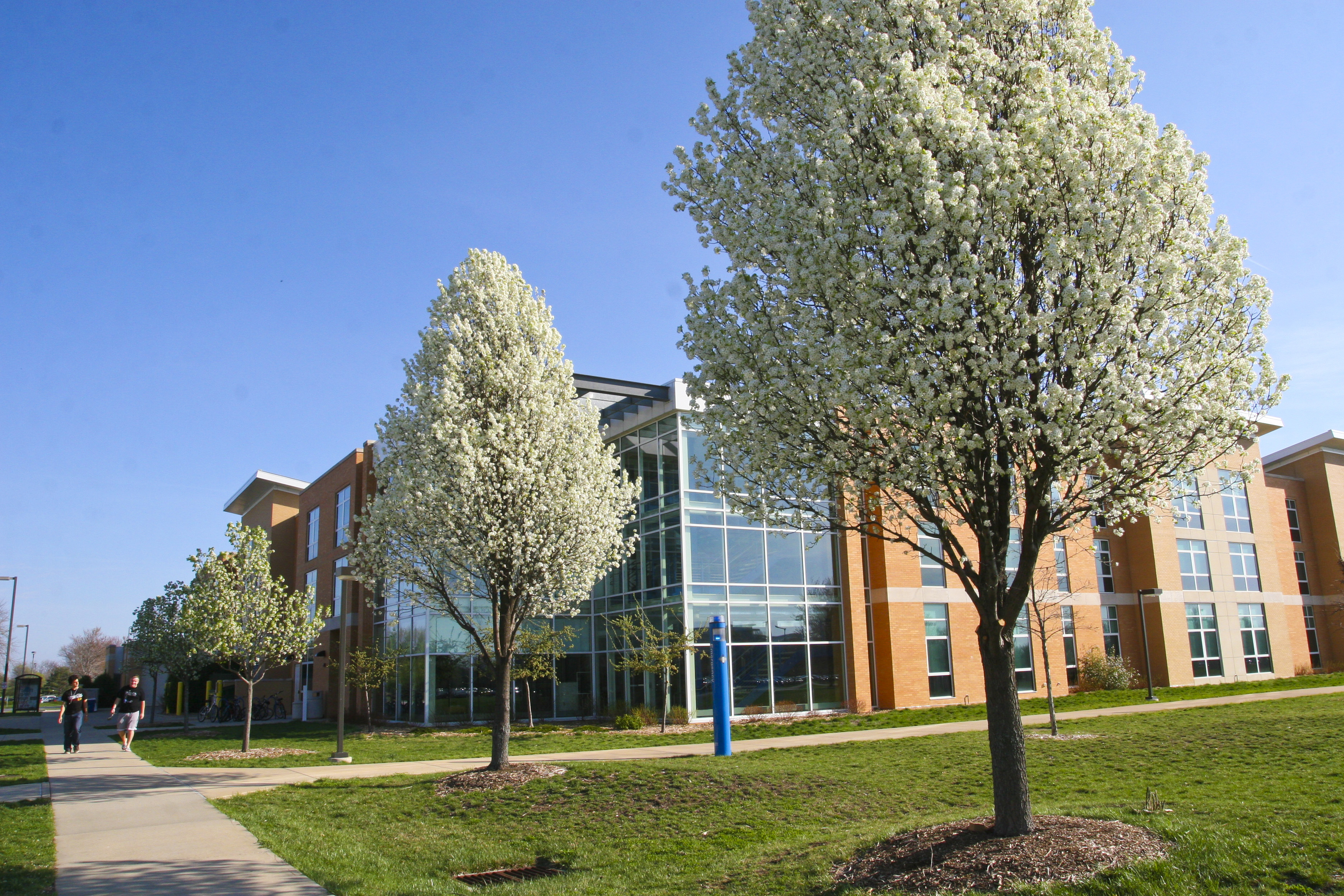The Basics
Pest control is not just the regular treatments that are provided by Department of Residence Life Facilities and our ORKIN vendor. The prevention of insects and rodents inside our living areas as well as keeping animals a safe distance outside our buildings is a responsibility for all of us.
To help reduce the nuisance complaints about pests and keep cost down, we recommend the follow for all areas:
- Report pests immediately by putting in a work order. Not all pests can be treated for by DRL Facilities or ORKIN but we can treat a lot and recommend steps to help with the problem.
- Do not be ashamed to report bed bugs. Immediate response is needed and the sooner we can respond, the better.
- DO NOT FEED outdoor animals. Not only is it against University and Residence Life policies, it attracts wild animals. Wild animals such as racoons and skunks love cat food and they may be carrying diseases harmful to ESA animals and humans.
- DO NOT LEAVE any trash or recycling container inside the residences for too long or near the buildings. Dispose of them correctly and properly in the dumpsters and containers provided.
- FOOD & WATER - do not leave out food or water for long. As long as there is a regular food and/or water source, pests will continue to come back.
- CLEANING - maintaining the sanitary conditions of the residence will help prevent pests and remove trails insects may follow. It will also help remove insect eggs.
What We Can Treat
DRL Facilities and ORKIN can treat cockroaches, ants, bedbugs, termites, and rodent issues in the residences. It should be noted that when we treat insect infestations, a barrier is created inside the living area. This barrier will stop insects from coming into the residents but it will also stop insects from leaving. There may be an increased visual of insects while the treatment is disposing of the insects. Treatments are also not immediate and often the material used is meant to slowly treat the issue and be safe around humans and non-pest animals.
We cannot treat gnat, spider, moth, water bug, cicada, stink bug, and similar insect infestations in the residences due to the nature of the products that are recommended for this and/or the fact that there are no treatments that may work. Residents may choose to purchase recommended products for these infestations and treat at their own discretion. We can recommend products. We also recommend pouring a small amount of bleach water down sinks with gnats and removing any food or water from those areas.
DRL Facilities coordinates with UIS Facilities to trap wild animals that have become an issue. Whenever possible we prefer to use a live trapping method and relocate the animals away from residences. We ask that students not go near these traps and to not open or release the animals.
When treating certain issues such as bed bugs or cockroaches, the DRL Facilities will provide educational information to residents to not only treat the infestation but to prevent the return of such pests. There are also step by step instructions that must be followed to make sure the treatment works. Failure to follow these treatments may result in costs being billed to the residents.
During our treatments of the grass for ants and after rainstorms it is not unusual to see a high level of ants in the residences. DRL facilities will treat these when reported.
Students Should
- Maintain a clean household. This includes…
- Removal of trash and waste on a regular basis. Discarded trash needs to be taken to the area waste receptacles and not placed outside the front doors, in the bushes or on the grassy areas.
- Sweep and mop non-carpet based floors weekly.
- Vacuum carpeted floors weekly.
- Clean bathroom sink and tub weekly.
- Pick up debris from around the outside of your residency. Litter left over from social gatherings provides some easy means of “survival” for pests.
- Place opened food in plastic, sealing containers – Chips and snacks, cereal and other food items which are commonly sold in boxes or bags larger than a single serving are often stored in the same bag or box once they are opened. Though you may not smell the flavorful aroma from your food, pests do! Placing items in plastic containers such as Tupperware, GladWare, Ziploc or another suitable storage product will eliminate the aroma issue and possibly add to longer freshness.
- Close doors and unscreened windows – One of the easiest ways for a problem to enter your residency is through an opening in which you can control such as the front door or a window without a screen. Simply keeping your door closed creates another barrier to pests.
- Report problems early – Do not ignore or simply live with a problem. Report it!
- Though seeing a single insect is not cause for panic or alarm, seeing several on a regular basis is the beginning signs of a problem waiting to grow. An unreported issue in one residency can grow to the point of affecting surrounding residencies.
- Submitting a work order takes seconds to do. Ridding an infestation which has been breeding for a long period of time can take months to resolve.
- Allow time for treatment to set in – The application of pest control methods will not result in an immediate removal of pests. To shrink a population which has been growing for weeks or months will take some time. There is not a timeline or specified number of days your problem will be resolved as each problem is different and may require different treatment methods.
